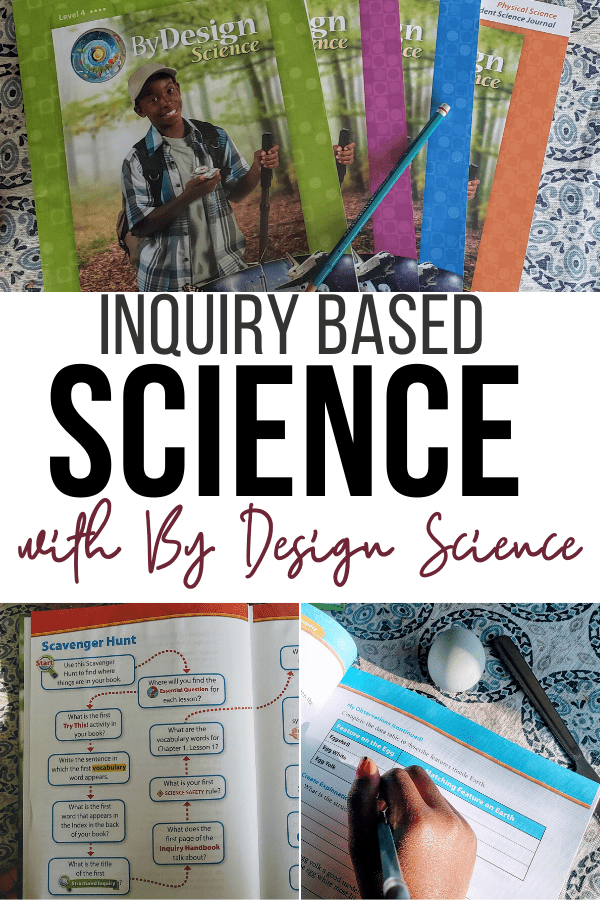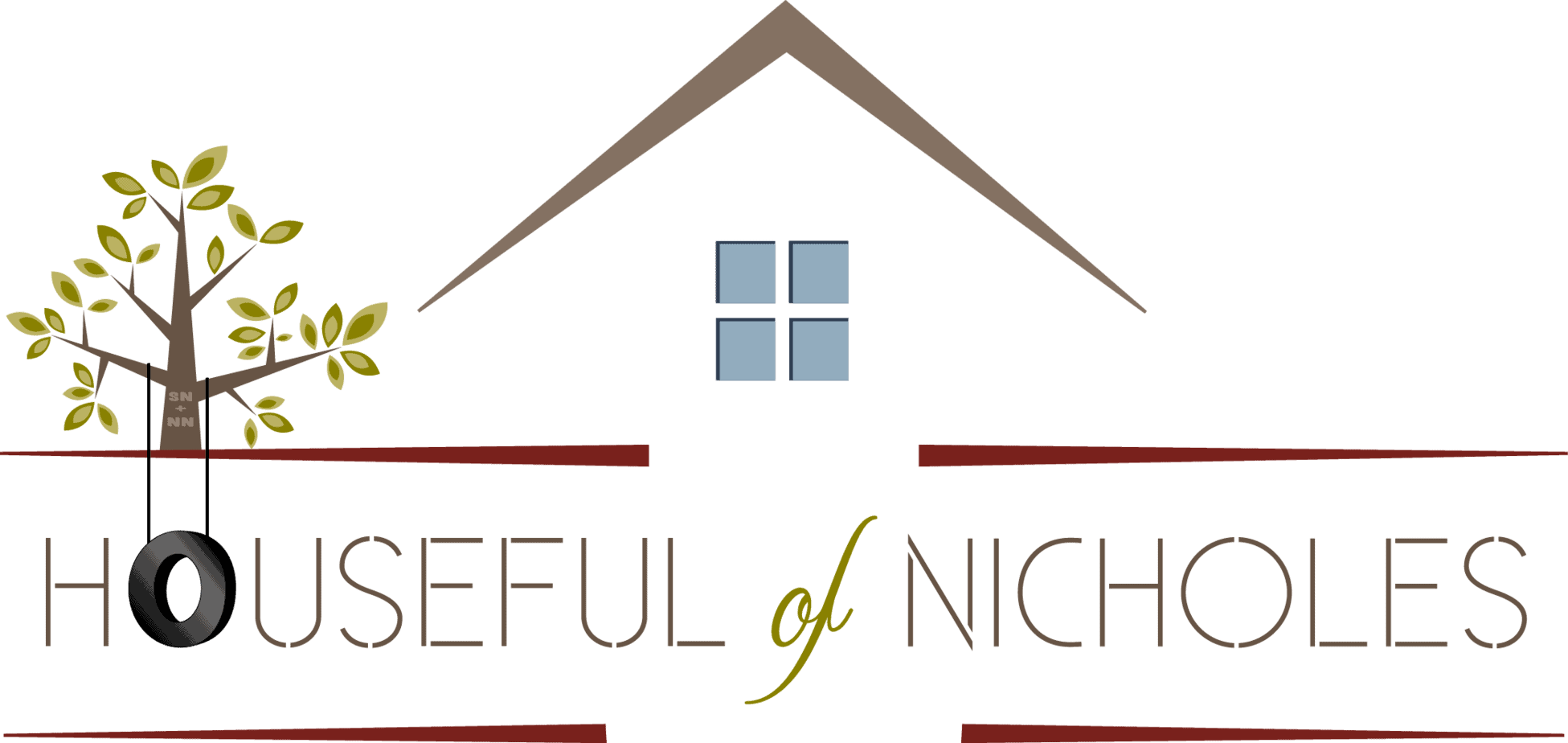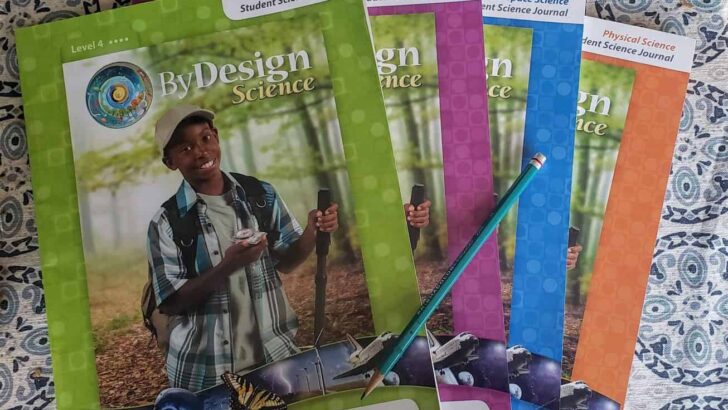Science has always been my jam. Well, biology, botany, and life sciences. Chemistry and physics not so much, but I digress. Even with my love of science, it has been challenging to teach my children in a way that created a sense of excitement like I had when I was their age. Instead of attempting to emulate my teachers who brought me so much joy through science class, I figured I would be happy if we found a curriculum that was both up to standards for me, and full of information for the inquisitive kids that I have. They ask quite a few questions, and we're often going down the rabbit hole to find out the whys of nature and science.
This is a sponsored post for By Design Science, all thoughts and opinions are my own.

I'm often caught between two worlds. The world of a science loving individual and the world of Christianity. I love both deeply. I mean, I am the wife of a minister. However, I've always been keen to the fact that since God designed the world, that meant that science was a perfect explanation from Him. They could exist mutually, and homeschooling didn't have to seem so...harsh. To be honest, when we first started homeschooling I shied away from religious curricula because it just seemed too much. It's nice to find something that allows for honest discussion, and helps us to understand the world around us.
It's also amazing to see just how much my children can think in the realm of science and Christianity and not bat an eye. I have hope for this world.
By Design Science
Who Is It For?
Kids with LOTS of questions

Do you often find yourself at the end of random questions from one or more of your children? In any given day, I can be asked a barrage of questions by all three of my children.
"Why is the sky blue?"
"Why are the male birds always the ones that are most colorful?"
"Why are there more bones in my body than in yours?"
I'm also the release point for random facts that they find from research or scientific shows.
"Did you know that Venus is the second brightest object in the night sky? "
"We should get a Lazarus plant, so we can see if it really does rise from the dead each day."
Their ability to see the questions in everything makes me happy (even if it's a little exhausting) because I know that the wheels in their mind will always be turning for the how too. Several points of view are presented and acknowledged, and THAT is important to me. When it comes to science, it's important to look at the information presented, and still be able to form ideas based on what's given.
By Design Science takes what my children love about observation and gives it right back to them. It's inquiry driven and starts each lesson with a question to be answered.
Parents With No Desire to Plan Curriculum from Scratch
The entire school year is planned out for you, and you can move as fast or as slow as you or your children require. This is important since we all know how pesky life can be when it decides to get in the way of everything. With workbooks color-coded to the section of the textbook you are currently teaching from, there is NO WAY to mess this up!

Parents With Several Children To Teach
By Design provides resources for families with multi-grades under one roof. The same topic can be taught across grade levels, and oh my goodness, how smart is that?!
By Design Science's 5 step instructional Model.
This teaching model is used to promote inquiry-based learning and to stimulate a natural desire for knowledge and a better understanding of God's creation.
Engage: Capture students' attention by a question that relates to the concepts that are being introduced. Spark students' interest, determine prior knowledge, and focus attention on the content in the upcoming lesson.
Discover: Students participate in one or more activities to explore the concept. This discovery provides students with a common set of experiences. Students learn by performing investigations using hands-on activities and scientific methods.
Explain: Students build their own explanation of a major idea, and the teacher helps guide their understanding of the concepts. Students read content and interact to develop scientific literacy.
Extend: Students extend and build on their understanding of the concepts by applying the content to other subject areas in order to develop greater depth of knowledge.
Assess/Reflect: Students complete an activity that will help them and the teacher evaluate their understanding of the concept presented in the lesson and chapter. Checking for comprehension and understanding are ongoing throughout the learning experience.
What's Included?
A teacher's manual, textbook, and 4 separate workbooks are all included in the curriculum that extends from 1-8 grades. A bonus is your teacher's guide is also online, so if you're like me and place books on one of the 6 bookshelves in your home, you can find the manual quickly without having to stop a lesson.

The textbook is one of my favorite things about the curriculum. Call me old-fashioned, but I'm happy when I don't have to print the text for my children, and can reuse a book over and over as long as the information stays pertinent to the times. Lovers of printing, don't worry! Your student workbooks aren't meant to be consumed if that's your preference. You can indeed print off the worksheets and keep the workbooks for copying, or reference.
The little hands of my children needed something that allowed them to do print work but ALSO experience the act of science activities. I've never been a fan of just writing answers in a book or on paper, and this curriculum acknowledges that.

The non-trained teacher in me also appreciates the fact that the entire year is planned for me and my children. I do a bit of prep work based on each lesson layout, and I'm done!
I'd recommend this curriculum with no reservation. I know that there are some hardcore secular homeschoolers out there, and I can understand that desire. The lessons here aren't so much heavy on Christianity, but the values that come from it.

